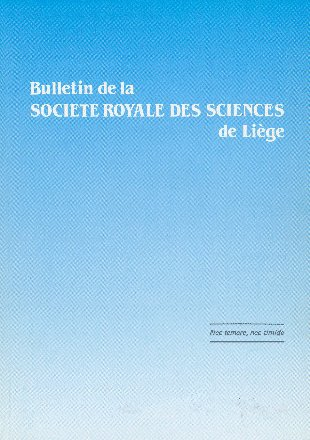- Startpagina tijdschrift
- Volume 87 - Année 2018
- Actes de colloques
- First Belgo-Indian Network for Astronomy & Astroph...
- A highly embedded protostar in SFO 18: IRAS 05417+0907
sinds 05 februari 2011 :
Weergave(s): 901 (8 ULiège)
Download(s): 91 (0 ULiège)
Piyali
Saha, Maheswar
Gopinathan, Manoj
Puravankara, Neha
Sharma & Archana
Soam A highly embedded protostar in SFO 18: IRAS 05417+0907
(Volume 87 - Année 2018 — Actes de colloques — First Belgo-Indian Network for Astronomy & Astrophysics (BINA) workshop - November 2016 - Nainital, India)
Article
Mots-clés : astronomie, astrophysique, formation des étoiles, infrarouge
Abstract
Bright-rimmed clouds, located at the periphery of relatively evolved HIT regions, are considered to be the sites of star formation possibly triggered by the implosion caused due to the ionizing radiation from nearby massive stars. SFO 18 is one such region showing a bright-rim on the side facing the 0-type star, A Ori. A point source, IRAS 05417+0907, is detected towards the high density region of the cloud. A molecular outflow has been found to be associated with the source. The outflow is directed towards a Herbig-Haro object, HH 175. From the Spitzer and WISE observations, we show evidence of a physical connection between the molecular outflow, IRAS 05417+0907 and the HH object. The spectral energy distribution constructed using multi-wavelength data shows that the point source is most likely a highly embedded protostar.
Keywords : astronomy, astrophysics, infrared, star formation
Om dit artikel te citeren:
Piyali Saha, Maheswar Gopinathan, Manoj Puravankara, Neha Sharma & Archana Soam, «A highly embedded protostar in SFO 18: IRAS 05417+0907», Bulletin de la Société Royale des Sciences de Liège [En ligne], Volume 87 - Année 2018, Actes de colloques, First Belgo-Indian Network for Astronomy & Astrophysics (BINA) workshop - November 2016 - Nainital, India, 257 - 261 URL : http://popups.ulg.be/0037-9565/index.php?id=7694.
Aryabhatta Research Institute of observational sciencES, Nainital, India and Pt. Ravishankar Shukla University, Raipur, India,
spiya1116@gmail.comAryabhatta Research Institute of observational sciencES, Nainital, India
Tata Institute of Fundamental Research, Pune, India
Aryabhatta Research Institute of observational sciencES, Nainital, India and Pt. Ravishankar Shukla University, Raipur, India
Korea Astronomy and Space Science Institute (KASI), Daejeon, South Korea







